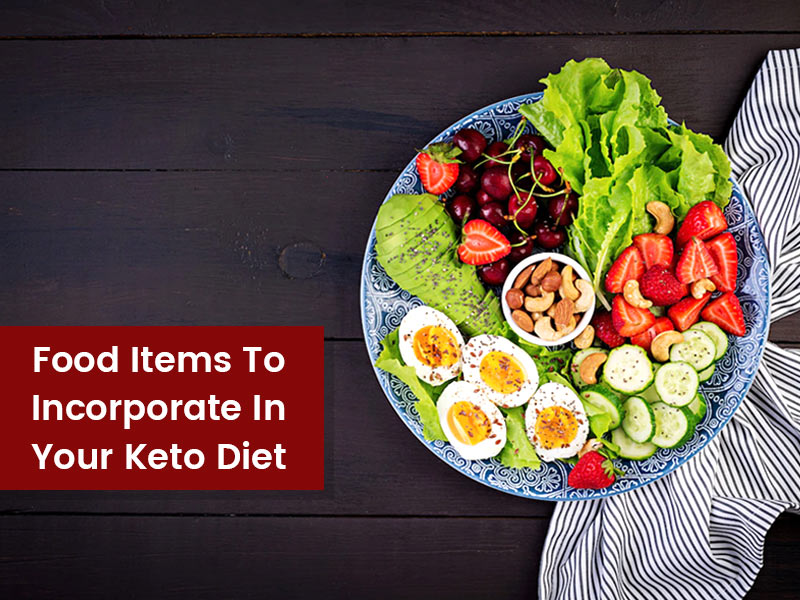
When it comes to dieting, people get very self-deceptive and it grows even more with the ketogenic diet. Keto diet has become one of the hottest trends due to all the new research showing how beneficial a low carbohyrate diet can be to your health. The keto diet requires you to cut out a large portion of carbohydrates in your diet and replace it with healthy fats.
Table of Content:-
When you restrict carbohydrates from your diet, you re-adjust your body to run off dietary and body fat as its main source of energy. Adopting a low carbohydrate, high in fat diet has been shown to provide several health benefits for example reduced inflammation, improved brain function and most importantly rapid weight loss.
However, cutting carbohydrates out of your diet can discourage many people from following this way of eating as a person might face complications like blood pressure fluctuations and the feeling lacked in energy.
Certain qualified dieticians plan for this therapeutic diet as a purpose but many are following this diet to control their blood sugars, especially those people who are having uncontrolled diabetes, PCOD, struggling for weight loss, and management of other metabolic diseases.

Also Read: Keto Diet: Benefits And Risks
Benefits Of Keto Diet
- Helps In Reducing Weight
- Triglycerides Tend to Drop
- Increased Levels of ‘Good’ HDL Cholesterol
- Reduced Blood Sugar and Insulin Levels
- Lower Blood Pressure
- Severely Effective Against Metabolic Syndrome
- Aids for Several Brain Disorders
There are several food items that can be incorporated in a ketogenic diet. For instance oil, butter, ghee, high fat milk, cheese, paneer, milk powder, chicken, fish & seafood, meat, nuts, avocados, coconut, etc. Let us dig deeper into what exactly you can eat while you do your diet.
Food Items To Eat When You're On Keto Diet
1. Nuts, Seeds and Healthy Oils
With being very low in carbs, nuts and seeds are full of healthy polyunsaturated and monounsaturated fats, fiber and protein. The two most recommended oils on a keto diet are olive oil and coconut oil. Coconut oil is high in saturated fat but contains medium-chain triglycerides (MCTs), which increases ketone production where as olive oil lowers the risk of heart diseases. However, it is adviced to measure portion sizes when consuming any type of healthy fat.

2. Cheese
One of the perks of a keto diet is that there is no stringent limitation on the intake of cheese. Cheese has zero carbohydrates and is high in. A perfect fit to ketogenic diet. It's also rich in protein and calcium. However, it is worrisome for heart patients and diseases. So, consider portions when noshing on cheese.
3. Yogurt and Cottage Cheese
Both yogurt and cottage cheese (Paneer) are high in protein and calcium-rich. Studies have shown that both calcium and protein can reduce appetite and promote fullness. Higher-fat yogurts and cottage cheese caters to keep you full for longer period of time.
4. Meat
Meat is a rich source of protein and is considered a staple on the ketogenic diet. Fresh meat and poultry contain no carbohydrates and are rich in B vitamins and minerals, like potassium, selenium and zinc. While processed meats, like bacon and sausage, are allowed on keto, they aren't the best for your heart and may raise your risk of certain types of cancer if you eat too much. Choose chicken, fish and beef more often than the processed meats.
Also Read: Cyclical Ketogenic Diet For Weight Loss: Try An Easy And Healthy Way to Burn Fat
5. Low-Carb Vegetables
Non-starchy vegetables are low in calories and carbs, but high in nutrients, like vitamin C and several minerals. They also contain antioxidants that help aids against cell-damaging free radicals. Therefore, if you are on your keto diet, aim for nonstarchy vegetables. Net carbs are total carbohydrates substracting the fiber. Broccoli, cauliflower, green beans, bell peppers, zucchini and spinach fit this category just perfectly.
However sure you are to kick start a ketogenic diet, it is important to be versed with some of its side effects. Listed below are some of them.
Side Effects Of Keto Diet
- Headache
- Nausea
- Vomiting
- Tiredness & lethargy
- Giddiness
- Sleep issues
- Heart problems
- Muscle cramps
- Constipation
- High blood cholesterol
- Blood pressure
Therefore, it is necessary to make an informed decision when it comes to ketogenic dieting. In case you feel nauseous or any discomfort, consult a dietitian or nutritionist in order to not lose you overall health.
Also watch this video
How we keep this article up to date:
We work with experts and keep a close eye on the latest in health and wellness. Whenever there is a new research or helpful information, we update our articles with accurate and useful advice.
Current Version
